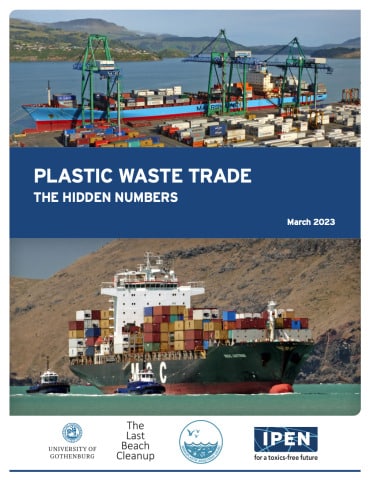Plastics are a mixture of fossil fuels and chemicals, and many chemicals in plastics are known to cause serious health problems. Exports of plastic wastes have been identified as a significant global health and environmental threat, but current reporting systems underestimate the volumes of plastic wastes that are traded globally.
To highlight the gaps in the current system for tracking the trade of plastic wastes, IPEN joined with researchers from the University of Gothenburg in Sweden, Cukurova University in Türkiye, and from the nonprofit The Last Beach Cleanup. Focusing on exports from Japan, the UK, the EU, and the US to non-OECD countries and Türkiye, the groups’ report, “Plastic Waste Trade: the Hidden Numbers“ highlights the large amounts of plastic waste exports that are often overlooked.
Looking at just two categories of plastic wastes that are overlooked by the current system, plastic wastes from textiles and from plastics in waste paper bales, the report finds that:
- Current systems miss as much as 1.8 mil tonnes of these two types of hidden plastic wastes.
- When hidden plastic wastes are counted, exports to non-OECD countries could be more than double.
- With hidden plastics counted, exports from the UK would increase by as much as 18 times. Exports from the EU are as much as 2.2 times higher, and from the US as much as 4.2 times higher.
- When tracking by the current system, Japan is the largest exporter of plastic waste; after adjusting for these hidden plastic wastes, the EU or US would be the largest exporter (depending on the range of estimates used)
Read the full report here!

